While experiential marketing feels like a relatively new buzzword, the truth is that it’s been an inherent part of real estate from the very earliest days of the industry. Let’s face it: real estate agents are really good at events! We love an open house, conference, and fundraising gala. So, while it sounds really outside of our standard marketing expertise, experiential marketing is firmly in a real estate agent’s wheelhouse.
What Is Experiential Marketing in Real Estate?
The definition of experiential marketing is pretty straightforward: It’s a unique, memorable in-person or virtual event designed to build brand awareness and loyalty and then promoted across marketing channels. Sometimes called engagement or participation marketing, it’s all about bringing your clients and community along with you.
The Benefits of Experiential Marketing
Experiential real estate marketing allows agents to connect with their target audience in a non-salesy way. The benefits of a well-executed experiential marketing campaign are clear:
How to Execute an Experiential Marketing Campaign
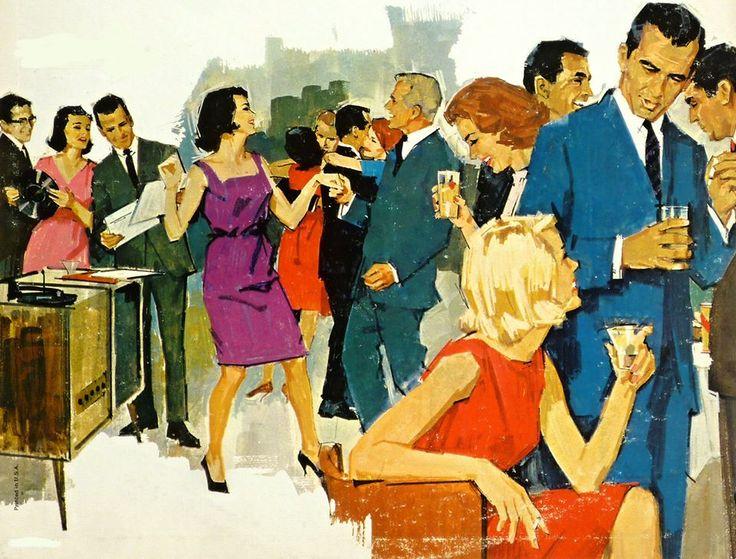
Establishing an experiential marketing campaign for real estate is the same as any other marketing campaign. You must take the proper steps to ensure it’s worth your time, effort, and expense.
| 1. Set your goal: What do you want to accomplish with your marketing campaign? Remember, these are long-term goals, as often the payoff takes time to see in action. | I aim to introduce myself and my real estate services to a new neighborhood and generate leads from that neighborhood. |
| 2. Measure your goal: How will you determine if you have met your goal? | In the short term, I want to collect at least 50 contacts, make at least 20 meaningful connections, and end with one listing appointment. The long-term goal is to generate brand awareness and affinity and start a relationship with this neighborhood that will last years. |
| 3. Establish your target audience: Who must you reach to achieve your goal? | I want to make my target farming area, the Museum District neighborhood, aware of my services. I want to become the go-to agent in this area and make these homeowners loyal to my brand. |
| 4. Decide your budget: How much can you spend, and what is your expected ROI? | This event will be expensive. I compiled a comprehensive budget and compared that with my short- and long-term goals to assess ROI. |
| 5. Consider your marketing strategies across channels: Where will you share promotional content, photos, and event videos? | I decided to promote the event on Facebook and Instagram, which will offer plenty of opportunities for beautiful photos of our garden party/tour of homes. |
| 6. Promote your event: What social media channels will you use and why? | I put branded, beautiful fliers up, asked the neighborhood listserv to include the event, and published the behind-the-scenes series on Instagram and Facebook. I’ve asked partners in the event (chefs, musicians, florists, homeowners, and party rental companies) to promote the event across their social media accounts. |
| 7. Host your event: Ensure plenty of photos and videos are shared online; setting up a branded background for selfies is even better. | The event is an in-person tour of homes with a welcome reception at a beautiful historic garden; we included food from local chefs, a local musician, beautiful flower arrangements, and a background for photos to post on social media. |
| 8. Collect data: What worked well, what didn’t work, what goals did you achieve? | Of the 75 RSVP yeses, 50 showed up. I had promising conversations with 22, and I got the contact information for all 75. |
| 9. Solicit feedback: What do the participants have to say? Send a follow-up email or text thanking your guests for attending and asking them to take a quick survey. | Participants liked the event overall and said they would return and bring friends and neighbors. Six asked for follow-up information on the brokerage. Generally, they thought the musician played too loudly, and the shrimp salad was not a hit. |
| 10. Follow-up: Ensure you connect with attendees who can become leads who can become clients. | I’ve reached out to the 22 guests that I really connected with and have asked to meet for coffee. One follow-up email resulted in a request for a listing appointment. |
| 11. Start planning: As soon as you’ve figured out what works and how to optimize your ROI, start tackling your next real estate experiential marketing campaign. | This event was a success. It’s time to start planning for the next one, with a similar strategy but an updated goal. |
Experiential Marketing & Social Media
Synergizing your in-person experience online through social media will make your marketing campaign skyrocket. Consider this advice from our in-house marketing and social media expert Kaydi Rainey:
Experiential marketing in real estate is about creating immersive experiences that compel people to share their excitement on social platforms. Real estate brands can amplify their reach organically by incorporating shareable elements like interactive features or behind-the-scenes content. Hosting social media contests, providing incentives for sharing, or creating unique hashtags can further encourage audience participation.
When people share their positive experiences, it not only boosts brand visibility but also enhances authenticity and trust. Empowering people to share on social media is key for driving engagement, building community, and forging meaningful connections in today’s digital landscape.
Social Media Tips:
- Select your channels appropriately—is your event full of beautiful scenes and people? You’ll want to use Instagram, Pinterest, and Facebook, which are more visual. A more cutting-edge event might be a better fit for X (Twitter, formerly),
- We love seeing behind-the-scenes content as you prepare for your event—it makes your audience feel like they are a part of your journey.
- Use hashtags that will connect your relevant content to a new audience.
- Use quotes from speeches during your event and repurpose them as simple content for a story or reel.
- Video content is a must for most experiential real estate marketing events—even if you use short clips and string them together, it’s sure to make an impact.
- Like, comment, and share on social media; engage with your audience as it helps build community.
Experiential Real Estate Marketing Examples
Example 1: Partner With a Luxury Brand—Bringing Scotland to the Upper West Side

A team at Douglas Elliman hosted an event with The Macallan, a renowned Scottish distillery, at a luxury property in the Upper West Side. To make this an unforgettable experience, they transformed one of the mansion’s sitting rooms into a recreation of the Easter Elchies House on the Macallan estate in Speyside, Scotland. The catered event offered a virtual reality tour of the Scottish distillery, a social media-friendly backdrop, and, of course, whiskey tastings.
This excellent experiential marketing event accomplished three things:
- The event implicitly implies that the property is “luxury” by equating it with a luxury beverage brand.
- The brokerage brand appeared synonymous with good taste and good times.
- It was shared widely on social media, extending the reach of the actual in-person event and making the guests virtual ambassadors for Douglas Elliman, The Macallan, and the property.
When promoting a luxury property, you want to ensure the world recognizes your luxury brand. One of our top picks for website builders does just that. Luxury Presence creates stylish, lead gen-optimized sites and the marketing collateral to support them. When establishing and maintaining a luxury brand, there’s no better option than Luxury Presence.
Example 2: The Intimate Supper Club—Calling All Influencers
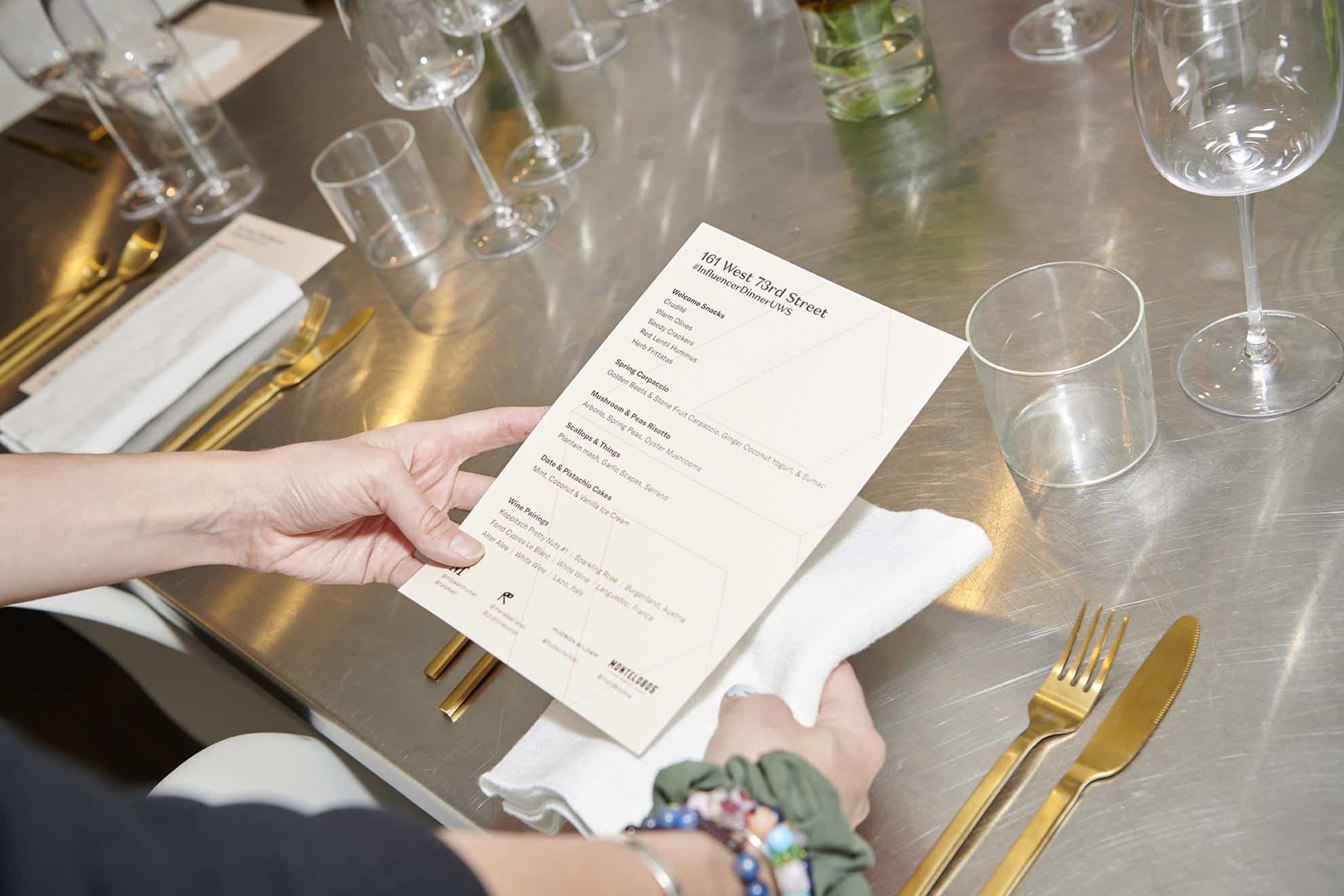
When brainstorming experiential marketing, ensuring the event matches the location is crucial. Take, for example, the Social Influencer Supper Club, hosted by Halstead agents Katie Thurber and Sean McPeak. Their listing was more of a family home than a decadent party palace, which made a smaller, intimate event a natural fit. Interestingly, they skipped the broker invites and included social media influencers from real estate, wellness, fitness, and food. By doing so, their curated guest list exposed their brand to a much wider world of luxury influencers.
Their supper club event accomplished three major goals:
- It exposed the property (and their brand) to potentially 5,000,000 unique followers on social media.
- While a small event, it strategically leveraged the guest list for a substantial return on investment (ROI).
- It created a sense of exclusivity, perfect for a luxury real estate brand.
Example 3: The Steinway Suite—Playing for Their Supper

Like the Macallan event, many of the best real estate experiential events are cross-over promotions. The idea is that both brands will benefit from the exposure and the proximity to another valued brand. Compass Development decided to help bring their model units to life with the help of Steinway Pianos. Eager to get their high-end instruments in front of homebuyers, Steinway offered one of their top-of-the-line Spirio player pianos (and a concert pianist to play it) at the property’s launch party—a classic win-win.
Much like the other examples, this campaign started with a partnership and ended at the closing table:
- It gave both the developer and Steinway a chance to show off.
- It left the guests with a sense of connection between high-end, classic brands.
- The guests wouldn’t easily forget what was essentially a private concert.
Example 4: A Los Angeles First—An Open House for the Dogs
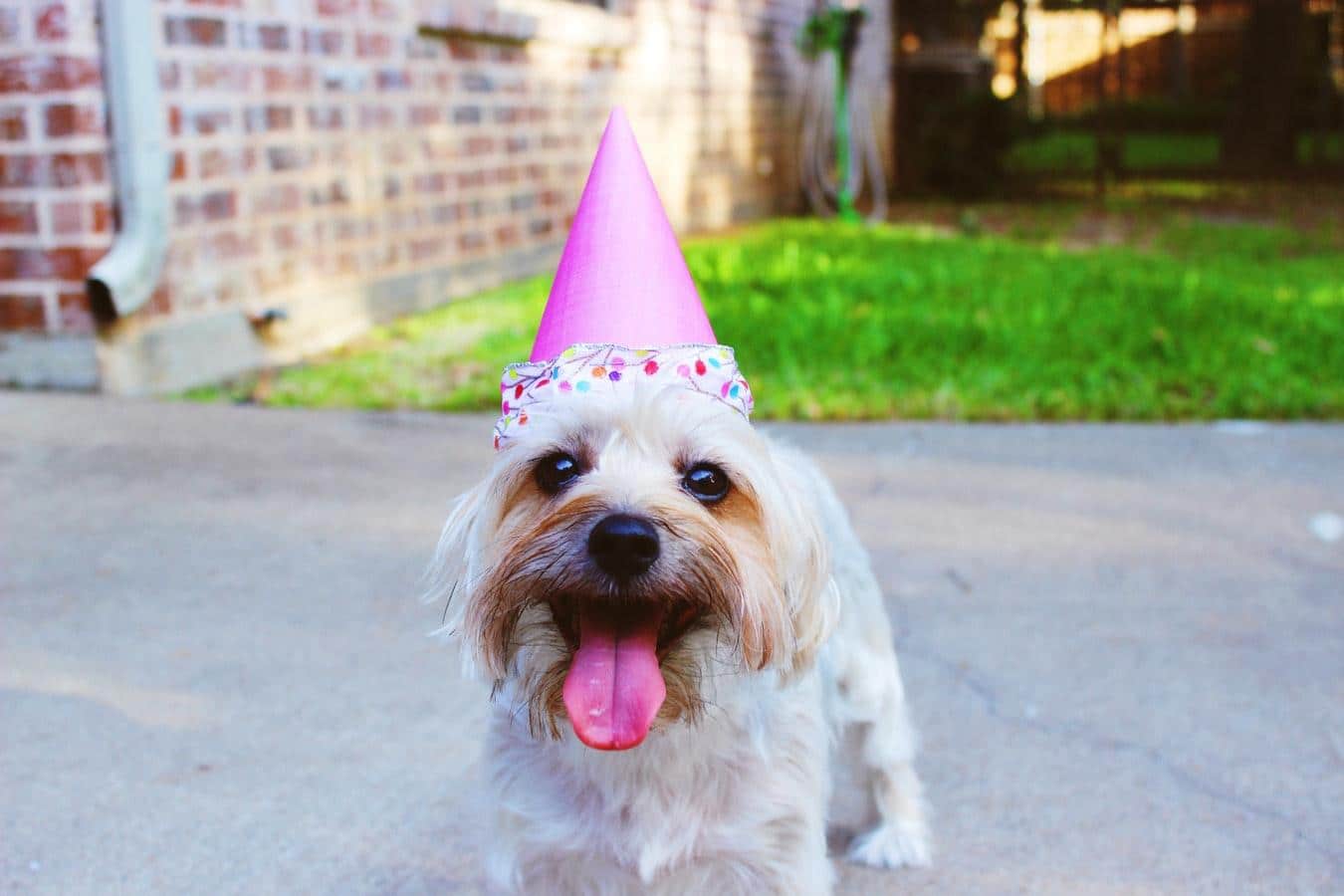
Creativity and not a huge budget make the best experiential marketing. Beverly Hills Realtors and the Aaron Kirman Group hosted a pet-themed open house at a local animal shelter that helped spread the word about needy pets. As guests mingled with pets up for adoption, it was easy for them to envision their life in the property for sale.
While this event lacked some of the over-the-topness of the other events, it did accomplish these things:
- Linked the brokerage/group’s brand with altruism in the guests’ minds.
- Provided benefits to the community.
- Created a memorable experience while staying budget-conscious.
Example 5: Holiday Tour of Homes—Brings the Cheer

Kiawah River Homes hosted a holiday tour with plenty to drink, food from local celebrity chefs, and sparkling music. Guests were inundated with holiday cheer as they visited the many different houses and perhaps the desire to buy a new home. The event was experiential (not just a typical open house) because it took everything to the next level, including sights, sounds, tastes, and smells. Every time the holidays roll around, those who went on the tour of homes remember the warm, fuzzy, festive feelings from the Kiawah River.
The event was successful because it:
- Utilized all senses (see holiday decor, smell and taste wonderful food, and hear festive tunes).
- Leveraged local chefs, helping to build their local bona fide status with the community.
- Offered guests a chance to visualize themselves in a new home already decorated, tapping into our collective desire for happy, warm, memorable holidays.
- It was expensive, but their marketing is cohesive and top-notch, so it contributed to brand affinity and loyalty.
If you’re planning a home tour and need help promoting your event, take a look at Coffee & Contracts. It offers hundreds of ready-to-edit social media templates, especially holiday-themed ones, perfect for promoting experiential real estate marketing.
Example 6: Augmented Reality—A Portal to Another World
While this was an extreme example of how someone can use augmented reality (AR) in experiential marketing, I couldn’t help but include it as a harbinger of what might come. I love how this marketing stunt seems to transport people into this apartment, and they are wowed. While using AR in everyday events might still be a way off, it’s fascinating to think of how artificial intelligence (AI) and AR can skyrocket experiential marketing, especially in real estate.
This type of experience works for these reasons:
- It’s unexpected and bends our understanding of reality in a way that is certainly memorable.
- It conveys innovation and forward thinking.
- Potential buyers are not just impressed by the marketing but have a chance actually to experience the apartment.
Virtual Reality for Real Estate: A Comprehensive Guide
Experiential Marketing FAQs
What do you mean by experiential marketing?
Experiential marketing is creating a unique, memorable in-person or virtual event to build brand awareness and loyalty. It is then promoted across marketing channels and social media in particular.
What are examples of experiential products?
An experiential “product” is really just another way of saying an experience. For example, a product might be a basketball game, a hot air balloon ride, a concert, an art exhibition, or a tour of homes. It’s any kind of transportive event that builds awareness of your brand and helps to build loyalty and affinity.
What is an example of experiential relationship marketing?
Our favorite examples of experiential marketing are designed to build relationships. They create opportunities for agents to engage with leads, clients, and community members. A great experiential marketing campaign has the goal of creating lasting relationships. Imagine going to the Scotch tasting and being wowed, not only by the overall event but by the brokers with the imagination and the determination to pull it all off. It could be the start of a long real estate relationship.
Bringing It All Together
At the end of the day, experiential marketing is straightforward, and I bet you’re already doing it. Agents have always been good at creating memorable in-person (or virtual) experiences that wow. In today’s world, leveraging social media makes your marketing efforts even more impactful. It’s a strategy that takes a little imagination and creativity, but the return on investment can be truly exceptional.







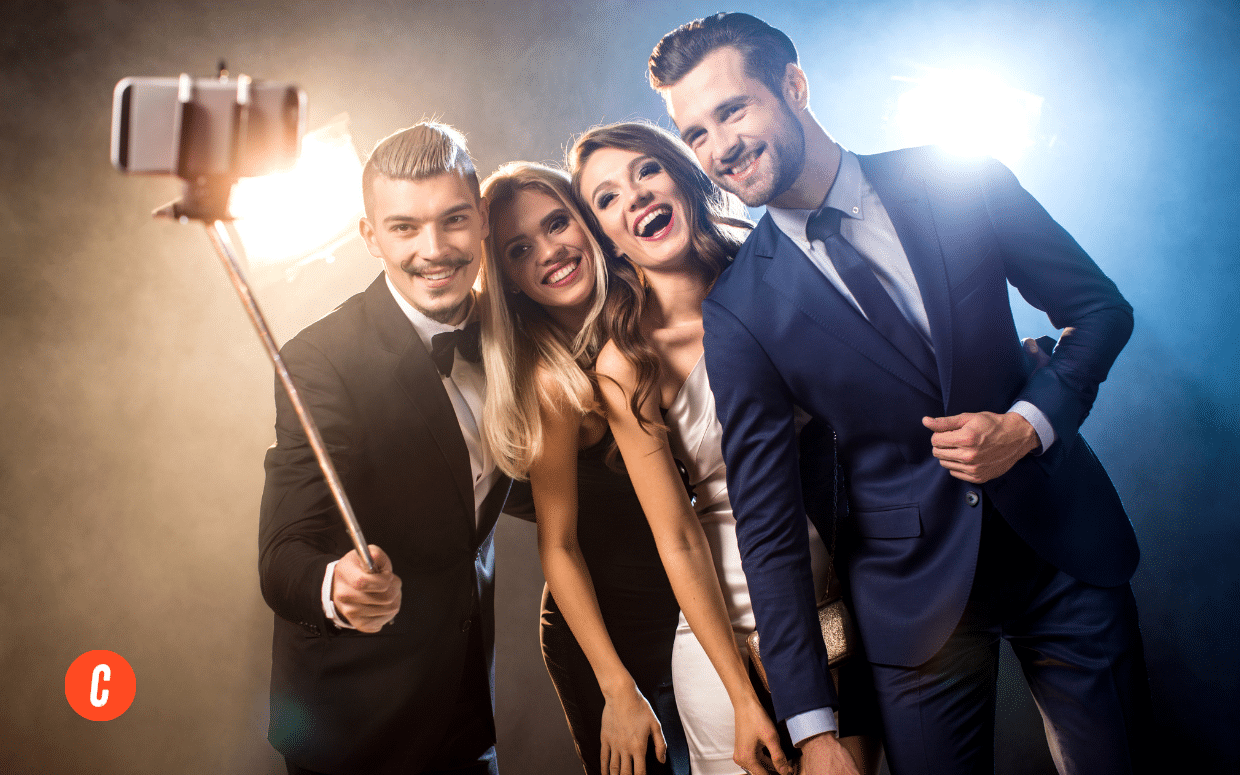

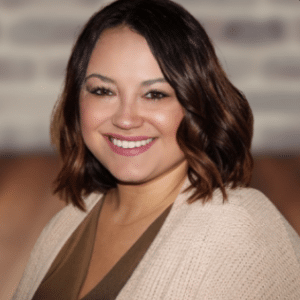
Add comment